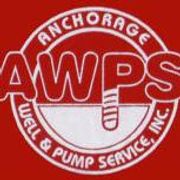
In some regions, groundwater contains high levels of minerals. A well’s supply can pick up minerals during the natural rock filtration process, becoming hard water. An elevated mineral content can negatively impact a home. Thankfully, water well rehabilitation effectively resolves the issue. Here are a few signs you could benefit from treatment.
How to Tell If Your Well Produces Hard Water
1. Soap Scum Buildup
High mineral concentrations prevent cleaning agents from breaking down. As a result, soaps and detergents are hard to rinse away, often leaving behind layers of lather.
Buildup is common around showers, tubs, and sinks. It may also leave streaks and spots on dishes you wash by hand or in the dishwasher.
2. Dry Skin
 Soap scum is a problem for the skin. When you bathe, body wash and shampoo may not wash away completely, allowing minerals and soap to dry out on the skin.
Soap scum is a problem for the skin. When you bathe, body wash and shampoo may not wash away completely, allowing minerals and soap to dry out on the skin.
Since these compounds can suck out moisture, family members might experience body and scalp dryness and itchiness. Hair dyes may also fade quicker than described by product labels.
3. Premature Appliance Failure
Modern appliances are built to last for years. However, mineral buildup can significantly damage water-based devices, including ice makers, dishwashers, refrigerators, and water heaters.
Accumulation often results in frequent blockages and breakdowns, so you might need to replace parts and equipment sooner than expected. Internal deposits also impact plumbing systems, increasing the risk of clogs.
If you suspect your well has a hard water problem, turn to the professionals at Anchorage Well & Pump Service, Inc. They’ve provided water well rehabilitation to clients in Anchorage, AK, since 1983. Their acidizing process removes a range of minerals from wells, including iron, calcium, and manganese. To ensure you get high-quality service, their technicians are certified Water Treatment Specialists under Alaska’s Department of Environmental Conservation. Learn more about water well rehabilitation online, or call (907) 243-0740 to schedule an appointment.
About the Business
Have a question? Ask the experts!
Send your question

